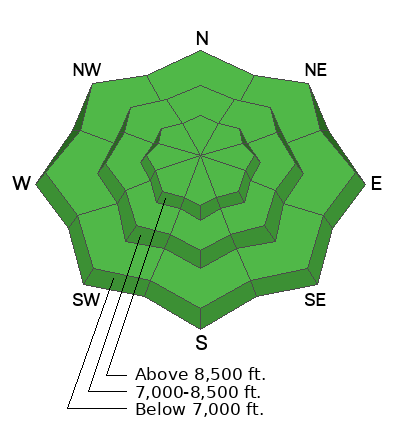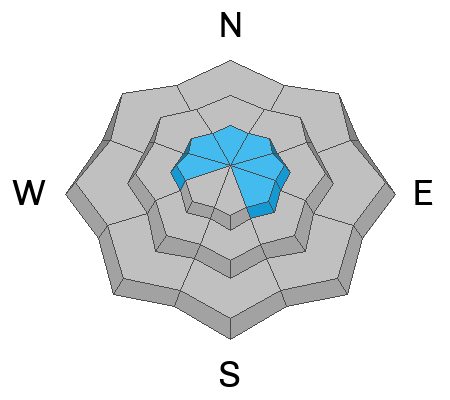Forecast for the Ogden Area Mountains

Issued by Trent Meisenheimer on
Saturday morning, December 16, 2023
Saturday morning, December 16, 2023
The avalanche danger is LOW, and triggering an avalanche is unlikely. Watch for unstable snow on isolated terrain features.
You must continually evaluate the stability of the snowpack when traveling in steep terrain on slopes facing west, north, and east where a persistent weak layer buried 2-4' deep exists.

Low
Moderate
Considerable
High
Extreme
Learn how to read the forecast here







